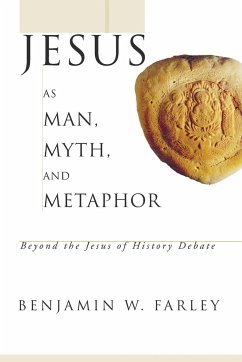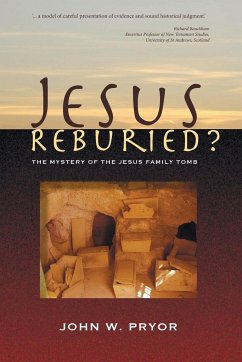
Jesus Christ Our Lord

PAYBACK Punkte
14 °P sammeln!
In response to readers' comments, this revised edition provides helpful clarifications, charts, and expanded notes and references. Kraus, in a theological description of Jesus Christ, offers answers to questions of Jesus' identity and the nature of the revelation-salvation which came through him. This anticipates his volume, 'God Our Savior', dealing with implications of Christ's revelation for other data of theology, such as God, humankind, the Holy Spirit, church, and eschatology. For many years the idea of vicarious suffering to atone for the sins of humanity has not been self-evident in We...
In response to readers' comments, this revised edition provides helpful clarifications, charts, and expanded notes and references. Kraus, in a theological description of Jesus Christ, offers answers to questions of Jesus' identity and the nature of the revelation-salvation which came through him. This anticipates his volume, 'God Our Savior', dealing with implications of Christ's revelation for other data of theology, such as God, humankind, the Holy Spirit, church, and eschatology. For many years the idea of vicarious suffering to atone for the sins of humanity has not been self-evident in Western culture, to say nothing of the cultures of Asia. Western theologians have presupposed Roman categories of guilt and legal penalty as the framework for their explanations. However, this has been unsatisfactory in cultures where social tradition and shame are primary moral sanctions. Observing that the biblical cultural context was more oriented to shame than to a legal concept of guilt, Kraus has reinterpreted the meaning and efficacy of the cross as the means of God's salvation. Such a reinterpretation requires that one also reevaluate the theological definition of Jesus' person. How one understands what he did for us is closely related to how one understands who he was. His identity and role mutually impact each other. Thus one must ask, Who was this one who reconciled us to God by suffering the shame of our sin? In answer, Kraus finds concepts of self-identity and self-revelation most helpful. Jesus, the self-revelation of God to us, is God-giving-himself-to-us. That self-revelation comes as a self-giving, and only in the form of a genuinely personal, historical, and human relationship. In all of this the author intends to present an authentically biblical picture of Jesus, but in the context of modern language and thought forms.













